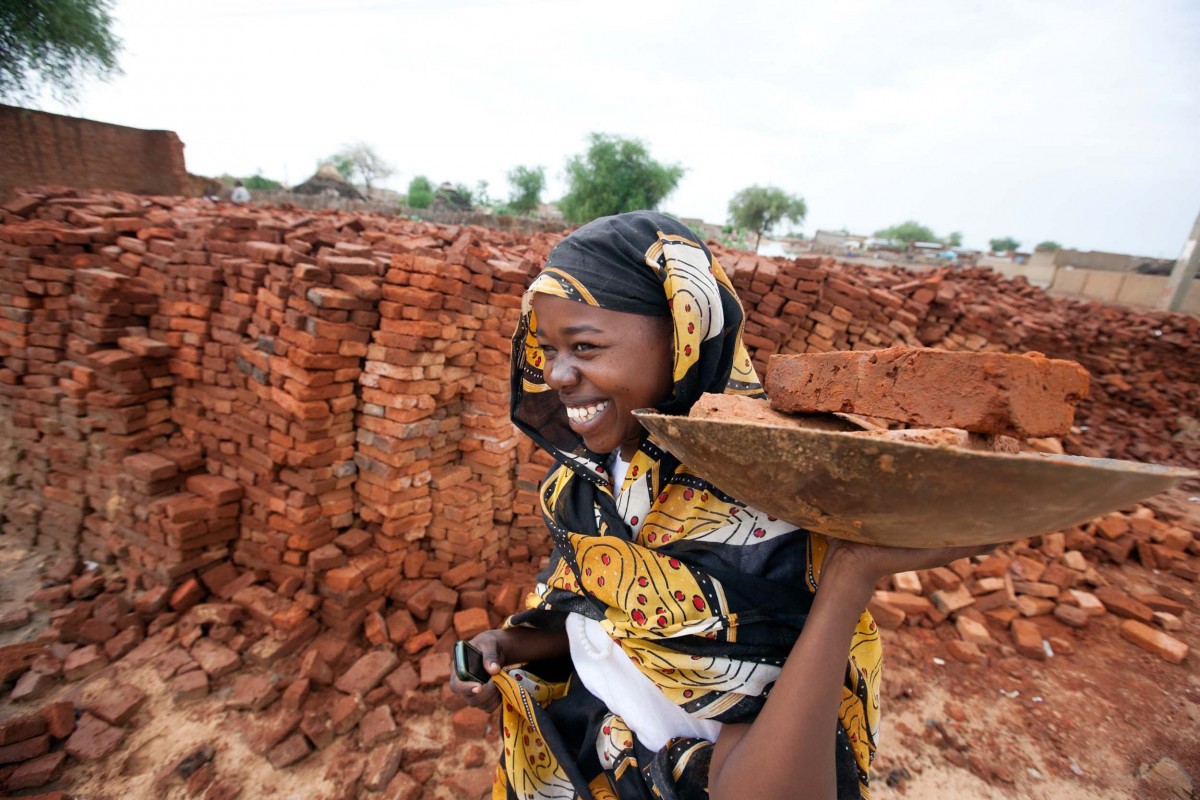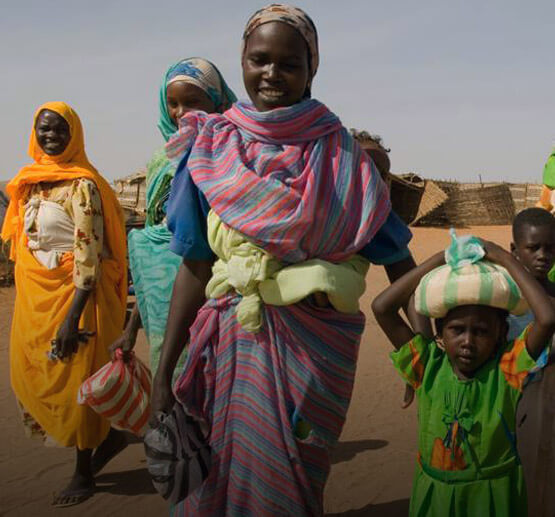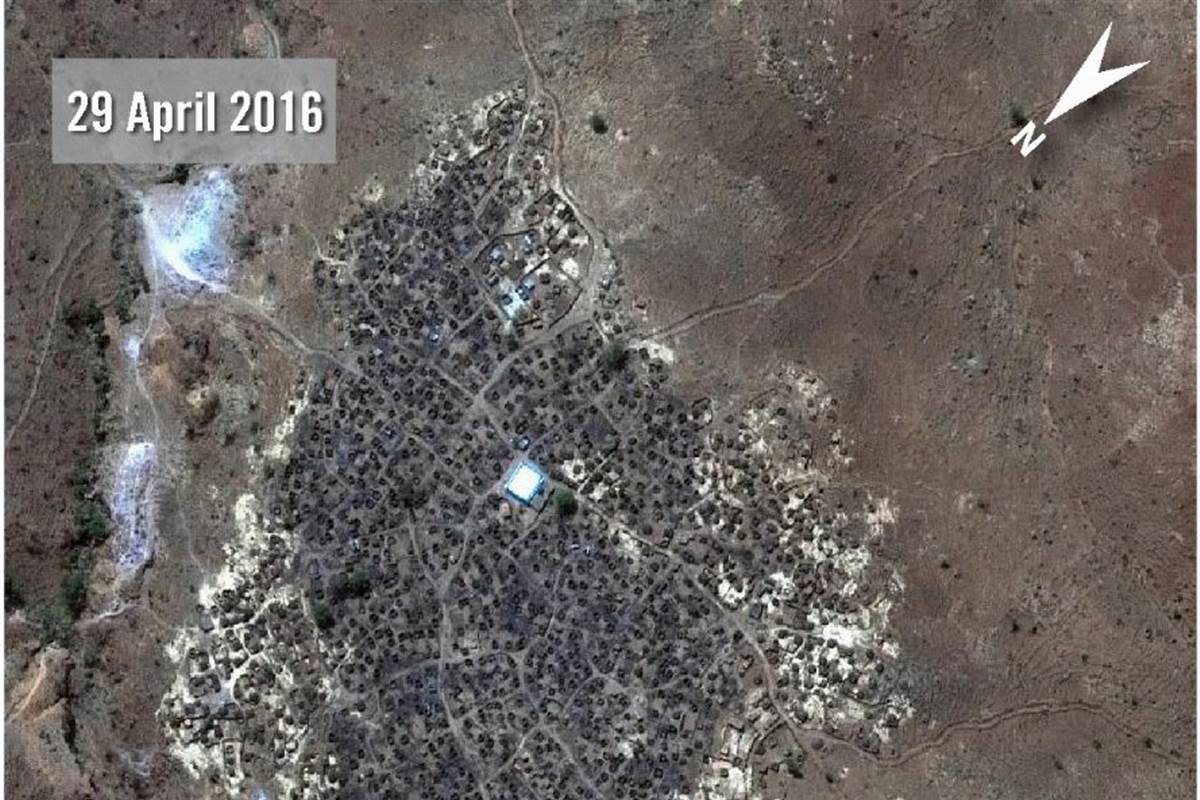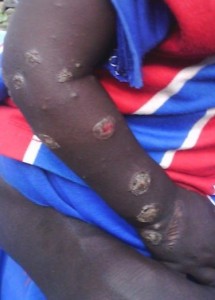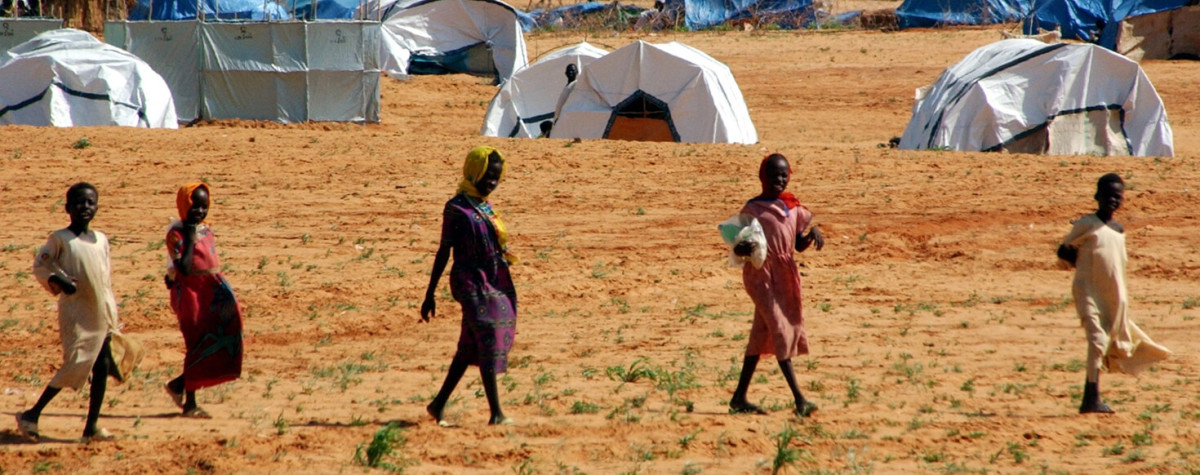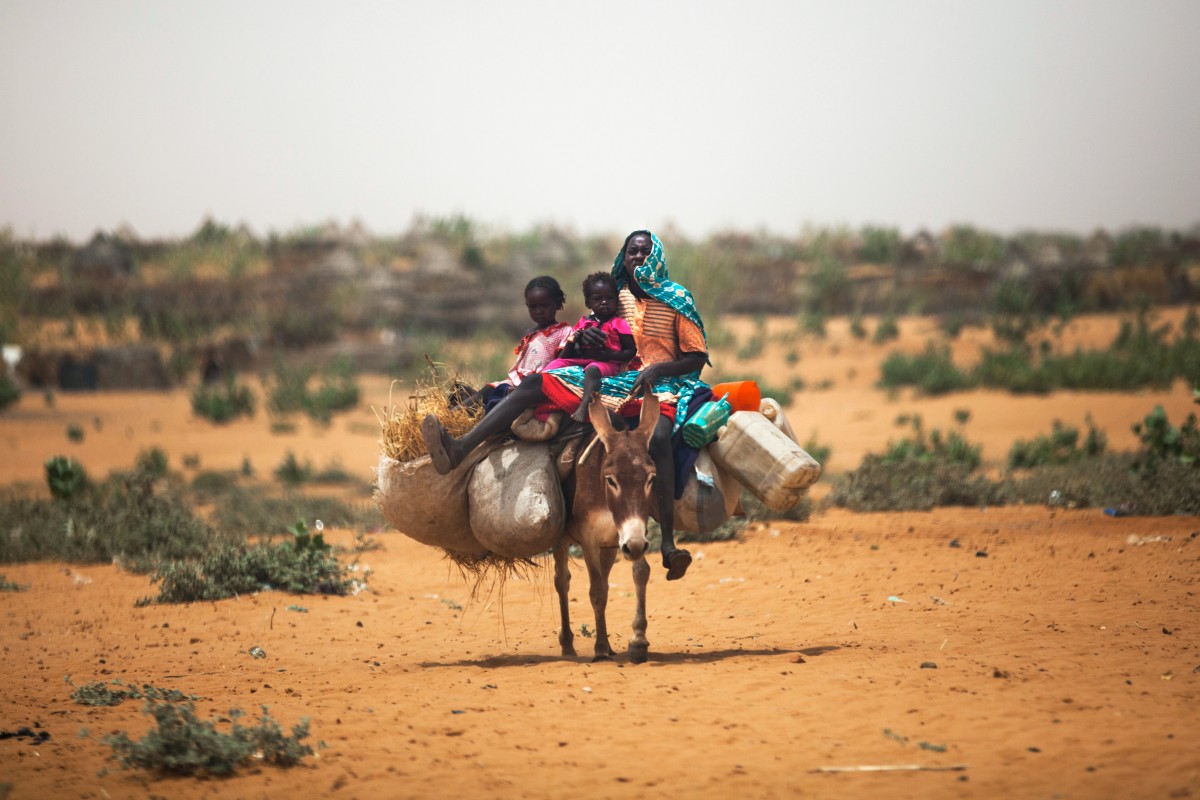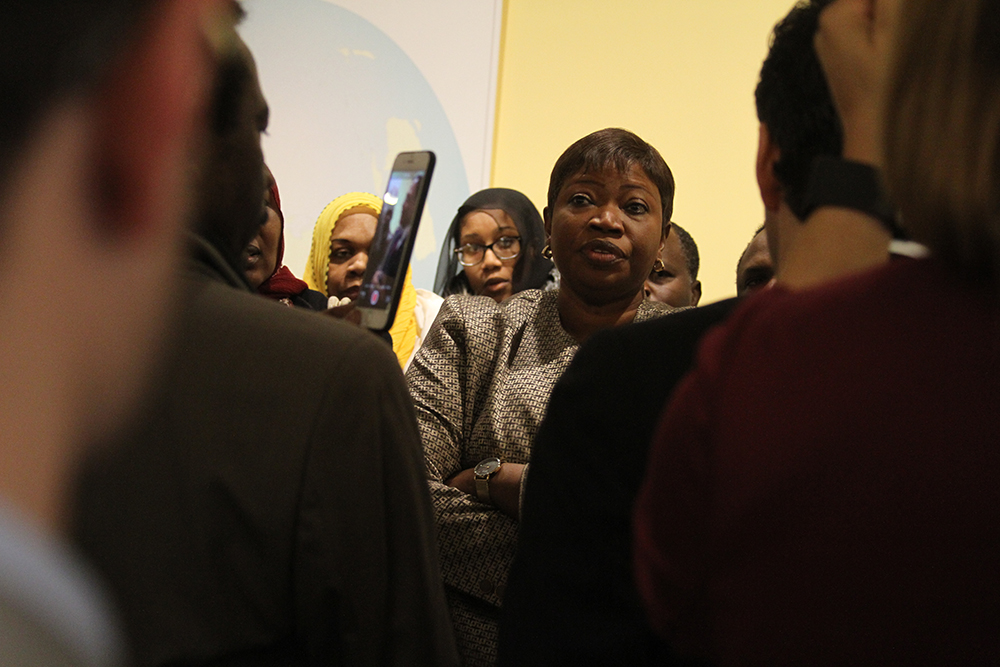9 February 2017
Member States of the UNSC
United Nations
New York
Your Excellencies,
Darfur Women Action Group (DWAG) and the undersigned would like to express our deep concern about the recent massacres against civilians in Nertiti, Jabel Marra, Central Darfur, and El Geneina West Darfur. We are particularly concerned with the continuing surge of violence that has killed countless men, women and children and devastated lives in Darfur, Sudan for more than 14 years. We are equally appalled by the lack of independence and transparency in the investigations of these incidents, a continuing and unfortunate trend regarding violent crimes committed against civilians in the area.
As you may have learned, on 1 January, Sudanese government forces invaded the city of Nertiti and committed a brutal massacre, slaughtering 10 innocent civilians and injuring another 60 people. Among the victims were several young children and the only doctor in the city, whose job was to save lives. On that same week, another tragic attack took place in El Geneina. On this occasion, 5 people were killed. Sadly, to date there has been no investigation or accountability regarding either incident.
We are disheartened by the continuing inaction of the international community regarding credible reports of the use of chemical weapons in Darfur. According to a report by Amnesty International, published in late 2016, over 250 civilians, the majority of whom were women and children, were killed by an aerial bombing of mysterious substances. The Sudanese government continues to deny access to the area for independent investigation while victims of the attack remain in need of urgent medical attention. Our contacts on the ground within the affected communities have reported that victims of such attacks are still suffering from skin breakage, vomiting, loss of vision and other symptoms as a result of the chemicals. As Sudan is a party to the Chemical Weapons Convention since 1999, we urgently call on the UN and the OPCW to investigate these allegations immediately.
Your Excellencies
The United Nation African Union Mission (UNAMID) troops were on the ground when these attacks took place, and in many instance not far away the crime scenes. UNAMID has constantly failed to protect civilians and to provide adequate reporting of incidents, which allows the government of Sudan to manipulate the situation, dilute the truth and restrict the flow of humanitarian assistance to the needy.
The renewed attacks in Nierteti and El Geneina are not isolated incidents but part of the ongoing and systematic attack that the Sudanese government has been perpetrating against specific groups in Darfur for more than 14 years. Violence has soared since 2016, with unprecedented aerial bombings that have driven well over 400,000 people out of their homes, many of whom remain trapped in the mountains. All the while, the government of al-Bashir has constantly denied these victims access to lifesaving humanitarian assistance.
We are deeply concerned that UNAMID and other United Nations’ (UN) agencies have failed to provide an accurate account of the number of violent deaths in Darfur as these attacks continue. The UN has also failed to document the exact number of incidents of sexual violence against women and of displaced people and communities. The inaction of the UN, and subsequent lack of data and pressure have resulted in insufficient humanitarian aid, a free pass for perpetrators and lack of justice for victims. We look to you, Mr. Secretary General and Mr. President, to ensure the UNAMID delivers on its mandate.
Your Excellencies, the ICC had indicted President al-Bashir for the world’s worst crimes – genocide, war crimes and crimes against humanity – yet he continues to carry on his genocidal policy against the people of Darfur. He has exercised ruthless barbarity and cruelty; his soldiers systematically use rape as a weapon of war. Despite more than 40 resolutions by the United Nations Security Council (UNSC) on Darfur and the fact that the International Criminal Court (ICC) has issued five arrest warrants for individuals responsible for the genocide and other crimes in Darfur, Sudan has refused to fulfill its commitments to international treaties related to human rights and to demonstrate respect for the rule of law.
Furthermore, Sudan has continued to defy justice and to undermine the authority of the UNSC by flouting its obligation to cooperate with the ICC, while continuing to undermine the authority of the UNSC with impunity.
Accordingly, we the undersigned call on the UN leadership, the UNSC and its Member States to match their words with actions to hold Sudan accountable. It is imperative that the international community hold the Sudanese regime accountable for violating fundamental international norms, not only in defense of the civilian population of Darfur but in the name of all humanity. We urgently petition the United Nations and in particular the UNSC to IMMEDIATELY take the following measures to end violence, protect civilians, and restore the dignity of the people of Darfur and Sudan at large.
We, the undersigned, ask that the UNSC act IMMEDIATELY to:
● Impose measures to ensure that the Sudanese regime and its sponsored militias immediately cease the criminal aerial bombardment of civilian areas in Darfur and throughout Sudan, including South Kordofan and the Blue Nile.
● Demand immediate access to the areas affected by the use of chemical weapons for an independent investigation and medical treatment to victims.
● Launch a professional and independent task force with expertise in sexual and gender-based violence to conduct an investigation into crimes of sexual violence, including alleged abuses in Tabit and other parts of Darfur and provide physical and psychological treatment for the victims of the ongoing sexual violence.
● Impose measures to ensure that the Sudanese regime allows unhindered humanitarian access and medical assistance to all people in Darfur and throughout Sudan.
● Impose measures on Sudanese regime and its armed forces, military intelligence, and allied militias to stop all war crimes and other serious abuses – including attacks on civilians, harassment, intimidation, arbitrary arrests, and restrictions on the freedom of movement of humanitarian aid workers.
● Demand that all military personnel, regardless of rank, implicated in abuses – including as a matter of command responsibility – are held fully accountable.
● Impose travel bans and freeze assets on individuals responsible for crimes committed in Darfur, particularly the use of chemical weapons, violence against women, mass killing, continued obstruction of peacekeepers, and denial of humanitarian assistance.
The suffering and oppression of the people of Darfur and Sudan have continued for far too long – especially for women and girls who have not only survived genocide but also rape. It is time for the UN and in particular the UNSC to fulfill their Charter responsibilities in order to ensure that civilians are protected, perpetrators are held accountable and the people of Darfur can voluntarily return to their lands, in the name of lasting peace, justice and human dignity. Those who commit genocide, use chemical weapons and rape as “normal” tools of war are morally and legally reprehensible. According them normal protocols as Heads of State and Government delivers the message – not only to al-Bashir but to other war criminals around the world — that the international community will accept such crimes without meaningful consequences. It is an erosion of customary international law and an attack on our common humanity that the United Nations must not allow to continue any longer.
We would be grateful if you would circulate this letter to all Member States of the Security Council.
On behalf of the survivors of genocide and sexual violence in Darfur and on behalf of all those who seek peace and justice in Darfur and in Sudan, We assure Your Excellencies of our highest consideration.
Sincerely, the undersigned.
Niemat Ahmadi, President
Norrie Kurtz, Chair of the Board
Darfur Women Action Group
Washington DC, United States
Lauren Fortgang and Diane Koosed
Never Again Coalition
Portland, OR, United States
Abdalmageed Haroun
Human Rights and Advocacy Network for Democracy (HAND)
Brooklyn, NY, United States
Dr. Jacky MAMOU, President
Collectif Urgence Darfour
Paris, France
Darfur Union in the Netherlands
Utrecht, The Netherlands
Stop Genocide Now
Redondo Beach, CA, United States
Greg Stanton, President
Genocide Watch
Washington DC, United States
Al Sutton M.D.
African Freedom Coalition
New York, NY, United States
Ismail Adam
Darfur Association of Canada
Toronto, Canada
Drar Adam Drar, Secretary General
Face Past for Future Foundation (FP4F)
Kampala, Uganda
Martha Boshnick, Co-chair
Darfur Interfaith Network
Washington DC, United States
Debra Dawson
African Soul and American Heart
Fargo, ND, United States
Ahmed H. Adam, Sudanese Scholar
United Kingdom
Daowd Salih, Co -Founder/Board President
Damanga Coalition for Freedom and Democracy
Charlottesville, VA, United States
Ibrahim Ahmed
Beja Organization for Peace and Development
Herndon, VA, United States
Eileen Weiss, Co-Founder
NY Coalition for Sudan
New York, NY, United States
Sharon Silber, Co-Director
Jews Against Genocide
New York, NY, United States
Mahjob Abdalla
Darfur Diaspora Association
Mississauga, Canada
Emily Bove, Executive Director
Women Thrive World Wide
Washington DC, United States
Esther Sprague
Sudan Unlimited
San Francisco, CA, United States
Motasim Adam
Darfur People’s Association of New York
Brooklyn, NY, United States
Olivia Warham, MBE Director
Waging Peace
London, United Kingdom
Eric Cohen, Co-founder
Act for Sudan
Boston, MA, United States
William Rosenfeld, Director
Coalition for Darfur
Boston, MA, United States
Susan Morgan, Co-founder
Investors Against Genocide
San Francisco, CA, United States
Dr. Ali Dinar, President
Darfur Alert Coalition
Philadelphia, PA, United States
Dr. Mahamoud Braima
Darfur Association
Baton Rouge, LA, United States
Adam Omer, President
Darfur Association
Lincoln, NE, United States
Bakheit Shatta, President
Darfur Community Association
Omaha, NE, United States
Elfadel Arabab, Director
Fur Cultural Revival
Portland, ME, United States
Abdelhameed Ali, Chairman
Fur Solidarity
Baltimore, MD, United States
